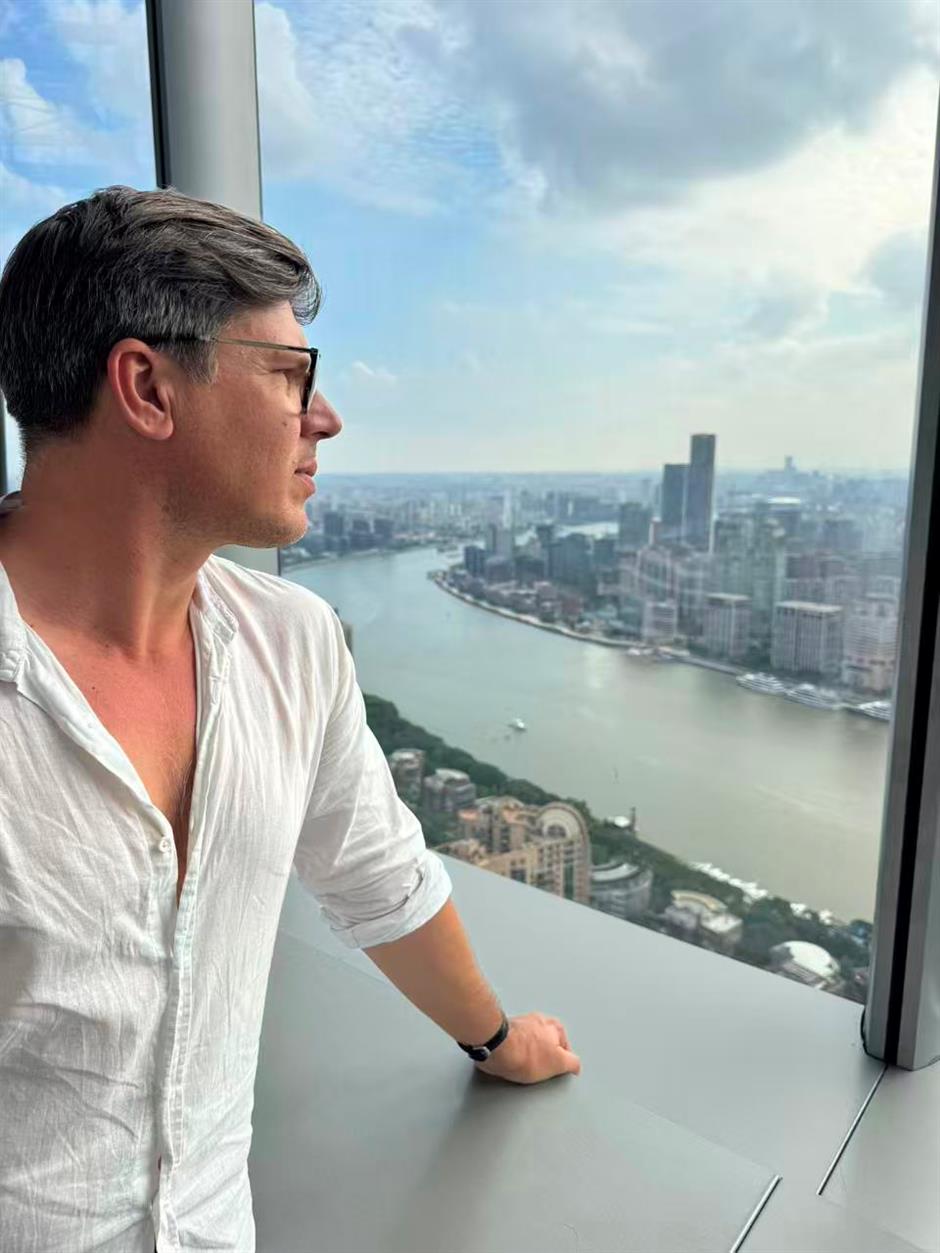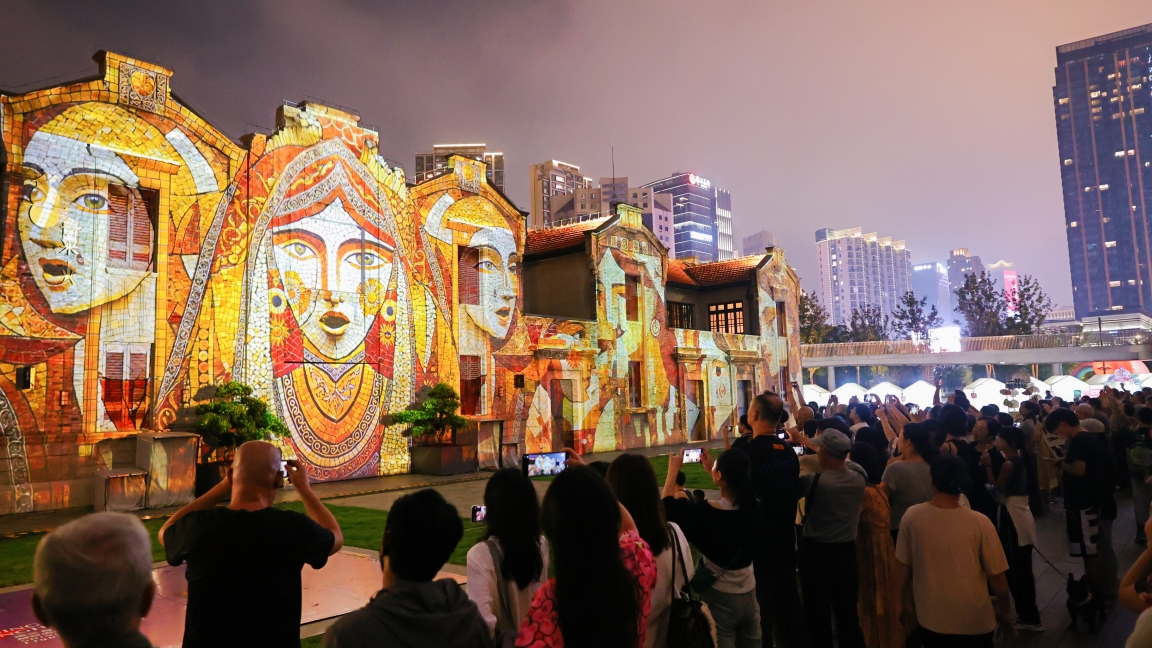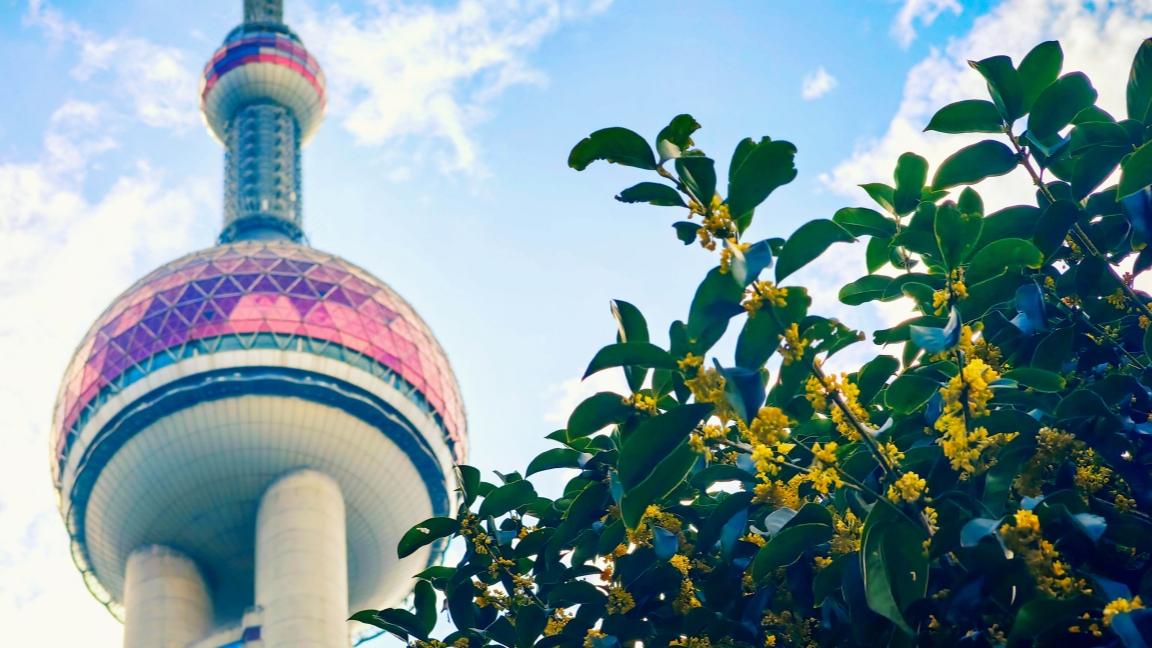Writers Find Inspiration and New Perspectives in Shanghai Residency

After participating in the two-month Shanghai Writing Program, eight international writers are departing the city with a wealth of insights, anecdotes, poetry and additional questions to ponder.
Since its inception in 2008, the annual residency program has welcomed 114 writers from 41 nations.
With China being a globally relevant topic, half of this year's eight writers have already expressed interest in publishing their literary diaries or observations about Shanghai.
"It's impossible for you not to feel that something is really working here," Portuguese writer Filipa Melo told Shanghai Daily.
"You can feel it in daily life. But if you have never been here and don't know the real China, it's easy to be stuck in old notions."
She is not the only writer eager to present the authentic China to readers; each provides an alternative viewpoint and utilizes various forms of expression to share their stories.
Shanghai Daily caught up with them to discuss their literary interests and experiences in the city.

Eileen Chong, from Australia
Eileen Chong, who was born in Singapore, "didn't expect to feel Chinese" before she arrived in Shanghai. Day by day, she has re-engaged with the Chinese language she learned years ago in school, begun thinking in Chinese, and gained a deeper understanding of the Chinese poems she had previously read in translation.
"I had never spent such a long time in a Chinese-speaking environment in my whole life," said the poet, whose heritage includes Hakka, Hokkien and Straits Chinese.
"I read so much Chinese poetry in translation, but there is always a gap."
To bridge that gap with her favorite Chinese poems, she compares 10 different English translations to enhance her understanding of the original Chinese.
"Language carries meaning, baggage and history. With these inherent differences, languages create different universes," she explained.
"I was never able to enter the Chinese universe until now."
Chong is the author of 11 books, with her most recent collection being "Notes on Tomb Sweeping."
She experienced little cultural shock upon arriving in Shanghai, a port city that shares similarities with Singapore while also possessing a unique character.
"I grew up in a port town, where diverse energies converge, revealing both connections and fractures," she said.
Locals sometimes mistake Chong for Shanghainese, a testament to her immersion in the local culture.

Adama Coulibaly, from Burkina Faso
Adama Coulibaly co-founded a writers' association in 1985 to promote literature in Burkina Faso. He is a professor specializing in history and geography, with a keen interest in geopolitics.
In 2018, he led a delegation of journalists to China. He subsequently attended Peking University for a three-month training program in 2020 and participated in the 14th Think Tank China-Africa conference held in Yunnan Province in 2025.
"Chinese live with their traditions, just like us in Burkina Faso, but at the same time, China is so developed with modern infrastructure and enjoys stability under the vision of its leaders," he stated.
His primary interest in China lies in how its large population has improved living standards and how that experience could benefit Africa.
He published his first book on Burkina-China relations in 2022, which focuses on the partnership established under the Belt and Road Initiative. In 2021, China and Burkina Faso signed a memorandum of understanding regarding this initiative.
While in Shanghai, he is working on his second book, which addresses the topic of world peace. He has also written 50 poems during his time there.

Ricardo Fernandes, from Brazil
Ricardo Fernandes had read about Shanghai in literature before finally seeing the city with his own eyes.
As vice president of the Brazilian Writers' Association, he collaborated with the Shanghai Writers' Association on a bilingual anthology of short stories, featuring eight from Chinese writers and the other eight from Brazil.
"In Brazil, Chinese literature has only just begun to develop. One key factor is the need for more translators," he stated.
"When I first began reading the Chinese short stories for this project, I sought out differences, given our cultural distance. However, upon completing the project, I was struck by how similar people are. Literature helps us connect with culture and understand each other more deeply."
Before arriving in Shanghai, Fernandes aimed to avoid forming any expectations, allowing his mind to remain open and free of prejudices.
"As soon as I got here, I felt at home. It's not just because I also reside in a large city, São Paulo," he noted.
"Shanghai, a city shaped by immigrants, has a sense of transience. It evolves and changes, while the people here are receptive to new ideas and accustomed to welcoming foreigners. They treat you well."
He has been writing a weekly report from a literary perspective, blending his observations of the city with short stories he has gathered during his time there.

Patricio Ferrari, Argentina/Italy/US
Patricio Ferrari's work explores how languages shape identity. Walking along Anfu Road in Shanghai, he encountered the Chinese character yu (雨), which sparked his interest in the language. The character means "rain" and is visually represented like rain falling from latticed windows.
"I had to learn Chinese," he resolved.
"Language is something alive, and the same goes for characters in Mandarin. As I learn the language, I try to honor that life. Characters are like people, each carrying a story. We only have to be open – and listen," he said.
Anfu Road and its surrounding lilong neighborhoods have become his favorites in the city, inspiring him to write a poem titled "Along a Lilong."
"These lanes embody a multitude of rhythms – street-level conversations, laundry hanging above the alley and the sudden tranquility of a courtyard," the poet remarked.
"Shanghai fosters a sense of attention. I'm learning to not just look at the city, but to truly see it – to immerse myself – the way one reads a poem, line by line, break by break."
As a literary translator, he has worked across various languages and views poetry translation as "not reproduction but reinhabitation."
"The translator serves as that privileged listener, attuned to a complex web of relationships," he concluded.

Rodolfo Häsler, from Switzerland
Cuban-born Rodolfo Häsler is well-acquainted with Chinese culture. Since the 1980s, he has published 13 poetry books and numerous translations of poetry and prose from German, French and Catalan into Spanish. His second book, a reflection on his childhood memories, features significant imagery from the Chinese culture he encountered in Cuba.
"Cuba was very multicultural, with influences from Europe, Asia and Africa. Coming to China is quite surprising. This presents a big cultural shock for Europeans; however, for me, many things feel very familiar," he recalled about his experiences in Cuba during the 1960s, before leaving at the age of 10 to live in Spain.
"In Shanghai, you find what you encounter in any major modern city, but beneath that lies the rich Chinese culture and tradition. There is also a strong blend of Chinese culture with the influences that arrived in the 19th century from Europe and the US. That blend excites me because, within me, there is also a mixture of various influences."
Häsler began keeping a diary of his observations during his first visit to Shanghai in 2024, where he participated in the Shanghai International Poetry Festival and stayed for 12 days. He has continued this diary during his return to the city for a residency program, and his publisher is interested in publishing it.
"Today, the world is very multicultural. China is a hot topic," he remarked. "Yet, there isn't much representation of it in Spanish literature, especially in poetry."
As a poet, he is deeply interested in Chinese poetry, which he sees as a profound means to understand the essence of poetry itself.
"The way they express things in the 9th and 10th centuries feels remarkably modern today. The way Chinese poetry reflects on nature and the contemplation of nature in connection with the spirit is simply marvelous."

Shilo Kino, from New Zealand
New Zealand novelist Shilo Kino learned Chinese in Hong Kong in 2017 during her first trip to China. A year later, she won a two-week trip to Guangzhou through a video competition focused on learning Mandarin.
This time, she arrived in Shanghai for her third trip to China, but she was struggling with writer's block.
"I just couldn't find any inspiration," she said, noting that the "magic city" has helped her overcome this challenge.
"This is such a magical place. You go out every day in Shanghai and find something new to explore," the writer remarked.
"The past and the future, the ancient and the modern city are combined to make this place. I don't know if there is a city like this elsewhere in the world."
Kino shared two moments of inspiration that helped her break through her writer's block. She accidentally stumbled upon a bookstore dedicated to Eileen Chang, unaware of the writer's significance. She fell in love with Chang's works and found herself returning to the bookstore repeatedly.
Another moment of inspiration occurred during a conversation with Shanghai writer Zhao Lihong. Moved by Zhao's experience of being with his mother during her final days, Kino went home that day and began to write.
"Now I can't stop writing," she said.
Kino's debut novel, "The Porangi Boy," is based on a true story about a small community's fight against the construction of a prison on sacred Maori land. The novel is now part of the English curriculum in New Zealand.
She is currently working on a generational novel set between Shanghai and New Zealand. This new work draws inspiration from her half-Chinese aunt, who was born to a Maori mother and a Chinese father who later returned to China. Her aunt was never able to locate her father or connect with her Chinese roots. Through this novel, Kino aims to shed light on the Chinese Poll Tax, a discriminatory immigration tax imposed on Chinese immigrants from 1881 until the 1930s.

Filipa Melo, from Portugal
Portuguese writer Filipa Melo arrived in Shanghai for her first China trip, bringing with her many questions and a book deal for a reportage on the city.
While she is still in the process of finishing the book, she has already decided on her concluding sentence: "Shanghai is a mystery to me."
Melo approached the city with an open mind, free from prejudices, and armed with many inquiries for her book. She has previously penned biographies for two property developers and is particularly intrigued by the construction of Shanghai as a city and the evolution of its residents' lives.
"In Europe, of course, we receive all the major news about China, but we remain largely ignorant of how people actually live here," she remarked.
"I want to discover and understand, even if it is just a little."
She is captivated by the city's communal destiny, which is intertwined with personal histories, the balance between public and private life, as well as the blend of nostalgic history and modern style.
"I feel a sense of nostalgia in Shanghai, reminiscent of a lifestyle from the past, yet it is also a vibrant city where everyone is working to contribute to common progress," she said.
"The city provides a comfortable living environment for its citizens. It's safe, with efficient transportation, affordable electricity and well-designed public spaces, making it accessible to live in a modern city like this. It is planned with the intention of meeting people's real needs."
Her experiences, which contrast with outdated perceptions of China in Europe, inspire and challenge her daily, prompting her to reflect on her European roots.
"In Europe today, we are confronted with new paradigms concerning freedom, community-building, and how we live, including the social boundaries of personal freedom and the role of citizens in contributing to public well-being."

Péter Szucs, from Hungary
The most popular article on Péter Szucs's travel blog was inspired by his first two trips to China in 2017 and 2018. He explored vibrant cities like Shanghai and Beijing, as well as rural villages in the picturesque Guilin, south China's Guangxi Zhuang Autonomous Region.
He juxtaposed urban and rural China in his article, which remains highly popular.
"The city experience of Shanghai became richer because of the untouched village life in Guilin," he recalled.
"People in the West have a different perception of China, and many who frequently discuss it have never been here. I opened the door and showed them real China, both urban and rural. That's why it resonates with so many."
On his fifth trip to China, he aims to write about the unique style found in Shanghai.
Originally trained as a horticulturist, he began his career as a journalist at the Hungarian National Radio before becoming a presenter. He had also contributed to several fashion magazines before becoming an independent creator and traveler in 2016.
"People, especially women in Shanghai, have a very distinctive style that is sophisticated, natural and classy. It's not just elegant or natural; I perceive a kind of innocence in them," he explained. "When I refer to innocence, I mean being pure-hearted, and pure hearts shine. It's a special kind of aura that you find in this city."
Shanghai also evokes nostalgic feelings reminiscent of the 1920s and 1930s, while simultaneously appearing futuristic.
Having visited 110 countries, the writer finds Shanghai remarkably quiet for a city with 30 million residents.
"That doesn't happen in every big city. But it certainly adds to the comfortable environment here in Shanghai," he noted.




In Case You Missed It...








